It’s taken 50 years. The State of Michigan’s Department of Natural Resources has a published strategy and policymaking that has effectively curtailed commercial fishing in Michigan to the brink of extinction. A trio of bills now under consideration in the Michigan legislature could, if passed, be the final act that could eliminate the 13 remaining family-owned commercial fishing businesses in the state. The other fallout of this trio of bills could effectively eliminate the ability of fish-loving consumers in Michigan to purchase locally harvested fish.
A Trio of Michigan Bills Could Wipe Out Michigan’s Remaining Commercial Fishermen

A set of bills now under consideration in Michigan’s legislature House Bills 4567, 4568, and 4569 would increase fines, impose new reporting requirements, hike license fees and extend bans on commercial fishermen from taking specific species of fish in Michigan waters. The set of bills was intended to update government regulation that that stretches as far back as the 1920s. Our analysis of the effect of them passing could devastate this small group of Michigan family companies.
Proposed Bills Punish Michigan Commercial Fishing
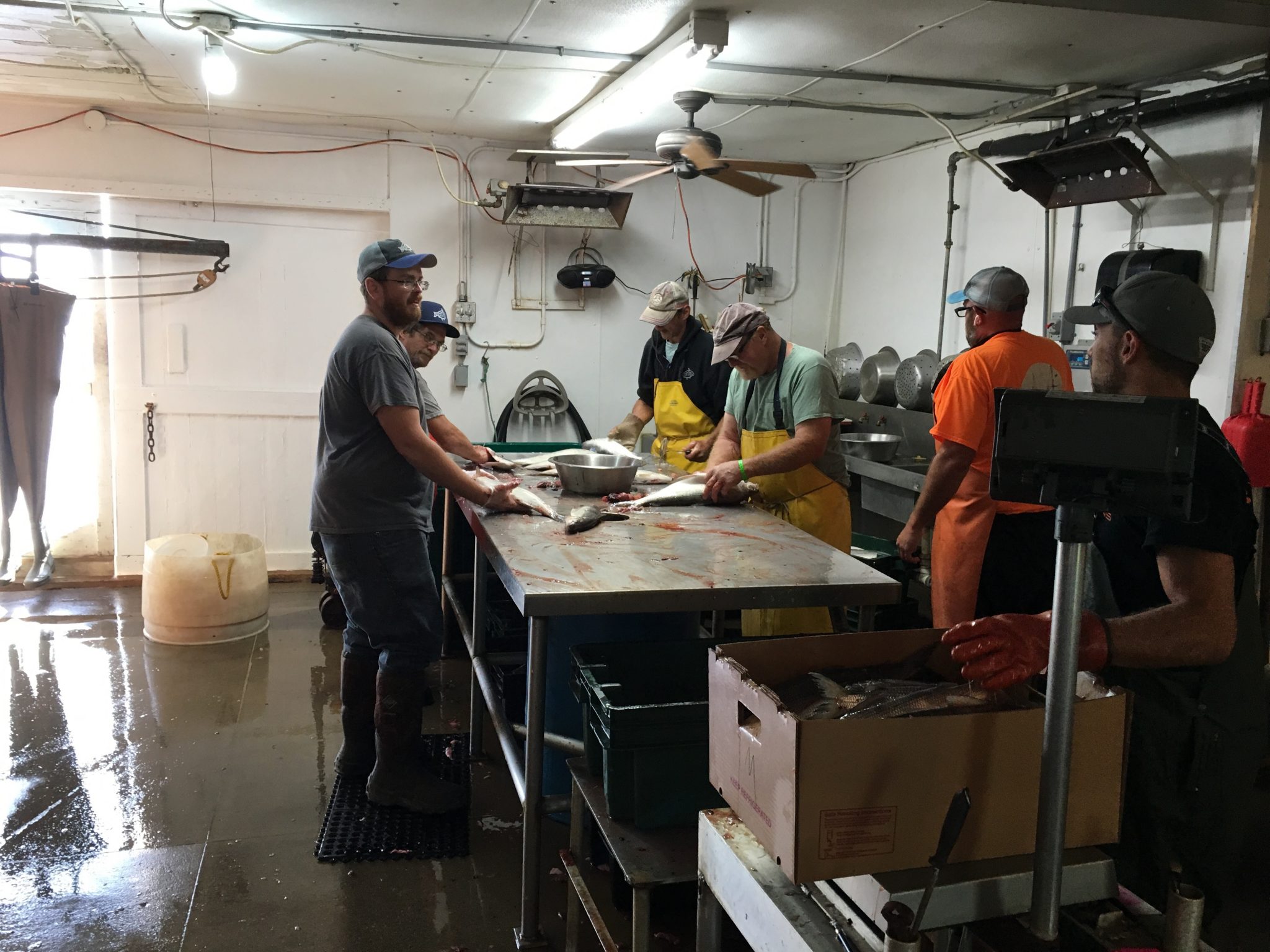
The key provisions of House Bills 4567, 4568, and 4569 are as follows:
Ban commercial fishermen from taking yellow perch in Saginaw Bay. Commercial fishermen are already banned from harvesting walleye and lake trout. The walleye ban continues even as Saginaw Bay is seeing record total harvest numbers walleye taken by sports fishermen
The perch ban on Saginaw Bay would impact five commercial fishing operations, including Bay Port Fish Company. These fishermen have had a license to harvest yellow perch since 1968. They supply restaurants and offer perch to consumers at their own retail stores and at the Port Austin Farmers and Detroit’s Eastern Markets. The proposed bills would not reimburse the five fishermen for the loss of the licenses. Native American tribes who currently harvest walleye and perch are not affected by the bills.
The bills impose strict new fines and even jail time for commercial fishermen who abandon their nets and gear. Folks are scratching their heads over this provision. Each net is tagged with the owner’s name and nets cost over $10,000 apiece to replace. It’s highly unlikely that such an essential, and expensive tool utilized to harvest fish would be purposely abandoned.
The bills serve to widen and expand the required reporting of fish harvesting from monthly to daily. The proposed bills fail to outline what the benefit of daily reporting will be to Michigan residents. Lastly, the bills also fail to point out how this expanded reporting structure will be administered. It’s likely that an expanded bureaucracy of the DNR will be required in order to meet the bills wide reporting mandates.
Specifically control the movements, distance from the licensed area, and ports utilized. Allows the Michigan DNR to specify where the fisherman can fish within the management zone. Limit travel nor more than 50 miles from a port. Use only one vessel per license.
Combined, the net effect of the trio of bills will likely impact the employment, cost of operations, product pricing, and viability of the remaining 13 commercial fishing companies operating in Michigan.
The State of Michigan has Actively Participated in the Decline of Commercial Fishing

The decline of the Michigan commercial fishing industry is no accident. On the DNRs website, it clearly states that in the 1960s, the Fisheries Division placed emphasis on managing Great Lakes fisheries for sports fishing and sought a diminished role for commercial fishing. In the late 1960s, the Department of Natural Resources enacted administrative rules creating development zones for recreational fishing throughout the Great Lakes, where commercial fishing would be prohibited. As a result, the number of commercial fishing licenses issued decreased from 339 in 1969 to 176 in 1970. Today 65 licenses are allowed; however, only about 13 are active.
In the 1900s Great Lakes commercial fishing was a huge industry. Thousands of commercial fish operations employing tens of thousands of people. Those days are gone. Today the DNR states that each commercial fishery usually employs somewhere between five to ten people. The companies are typically family-run operations and often passed down from one generation to the next. It is very common to see parents and kids working side-by-side on the water or store counter or market.
Save the Perch, Eat Walleye

It’s uncertain that these bills to further curtail or eliminate commercial fishing will improve the Great Lakes fishing ecosystem. Besides pollution and invasive species, the stocking of walleye and lake trout are arguably one of the factors in the decline of yellow perch in the Great Lakes as they are both active predators of perch
The Great Lakes commercial fishery for yellow perch is concentrated in the Ontario’s North Channel, and Saginaw Bay in U.S. waters.
In 1967, Michigan placed an administrative rule on commercial fishing banning the taking of walleye. This was due to its unhealthy state of the entire Great Lakes Region. While the administrative rule banned commercial fishermen from catching walleye, the species is still listed as allowable to catch. The proposed trio of bills serves to permanently classify walleye to a sports fish in and make the ban permanent. Today, if you’re eating walleye at your local restaurant its likely imported from Canada or bought wholesale from Native American fishermen who are not impacted by the ban.
Impact on Historic Tourism Sites & Events






Leland
Over on Lake Michigan, the iconic town of Leland may lose its primary draw as one of the last “Fishtown’s” in Michigan. Carlson’s Fish was founded over 100 years ago. The company has been managed by the same family for five generations. Fishtown draws thousands of visitors to stroll the fishmonger sheds, purchase locally caught whitefish and eat in the local restaurants. Without a supply of locally harvested Michigan fish, the future of the historic town is now in question.





Bay Port Fish Company
On Saginaw Bay, the Bay Port Fish Company has been providing Great Lakes fish to Southeast Michigan and the region since 1895. The Williams family has operated the fishery for over 39 years. Bay Port Fish Company has been the benefactor of the community’s Bay Port Fish Sandwich Festival for over 40 years. The company supplies the fish for the event including yellow perch. If this set of bills passes, the fish and possibly the company could disappear.
Bills Sponsors Contact Pages
FAQs on Michigan House Bills 4567, 4568, and 4569
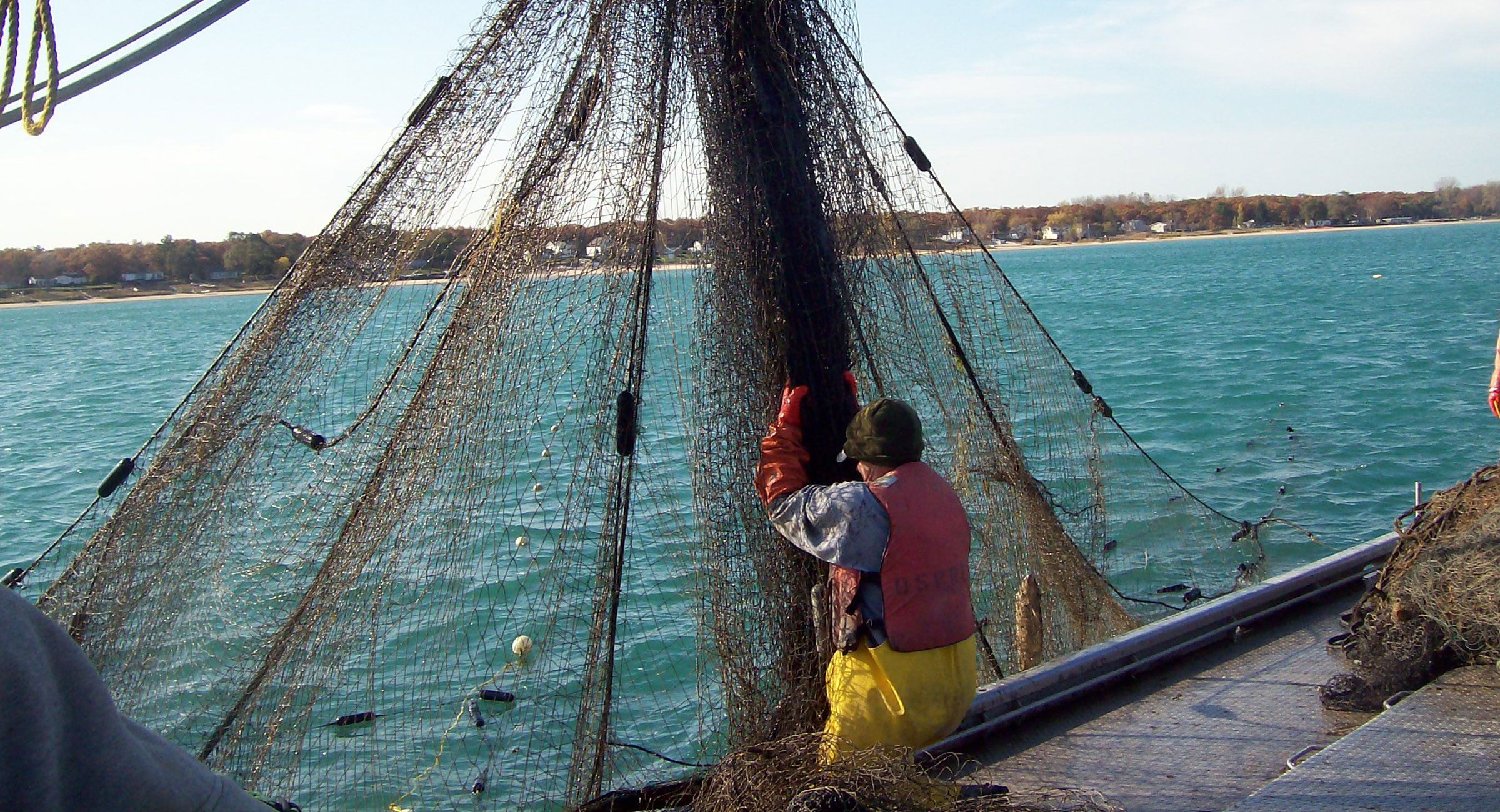
How much are fees going to increase for those holding a commercial fishing license?
The trio of bills would increase commercial fishing license fees from $200 to $1,400 for each license.
What other changes to commercial fishing are being proposed in these House Bills?
The bills will raise fines for illegally harvesting fish and add reporting requirements on what fishermen catch and where they leave their nets. Five holders of perch licenses on Saginaw Bay will lose their license for yellow perch. Perch can no longer be taken and will no longer be available for consumers.
What is the economic impact of not being able to harvest yellow perch in Saginaw Bay?
The Michigan DNR estimates that the “dockside” value of the annual perch catch would lower the fisheries revenue up to 35%, or between $400,000 to $500,000.
How many non-commercial anglers are there on the Great Lakes?
In a study conducted by Michigan Technological University estimates that there are over 1.8 million anglers on the big lakes and millions more on inland lakes, rivers and streams.
How much fish do Michigan commercial fishermen take?
In 2017, commercial fishermen harvested about 2.5 million pounds of fish. Native tribes harvested just under 3 million pounds of fish.
How much does it cost to regulate the commercial fish industry?
Bryan Burroughs, executive director of Trout Unlimited’ s Michigan chapter, told lawmakers. License fees on the few remaining commercial fishing businesses don’t come close to paying the $1 million to $2 million each year to manage that industry.
At that rate, Michigan could hire 13 full-time employees $153,000 each and provide direct oversight of each of the remaining commercial fishing outfits in the state.
If you feel strongly about this topic, please share it on Pinterest.
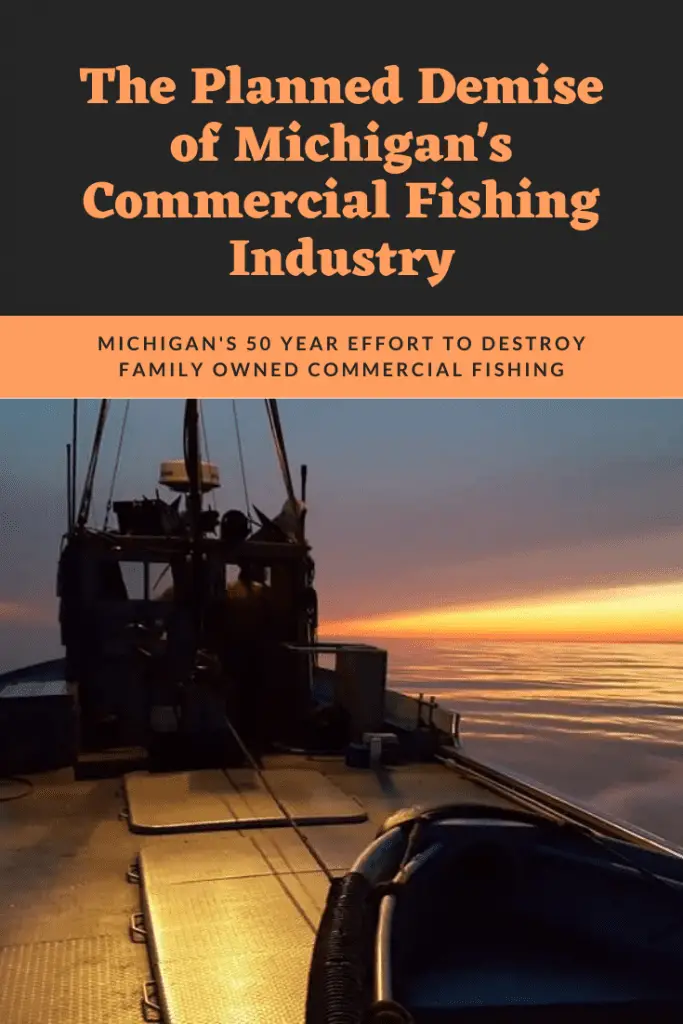
Sources of Michigan Commercial Fishing Information
- History of state-licensed Great Lakes commercial fishing
- Great Lakes Commercial Fisheries: Historical Overview and Prognoses for the Future
- Michigan Fish Producers Association
Related Reading
- Lake Huron-Michigan Water Level Hovers Near Record
- The Tasty Bay Port Fish Sandwich Festival
- Under the Radar, Michigan Visits the Thumb
- Bay Port Fish Company Reigns Over Saginaw Bay

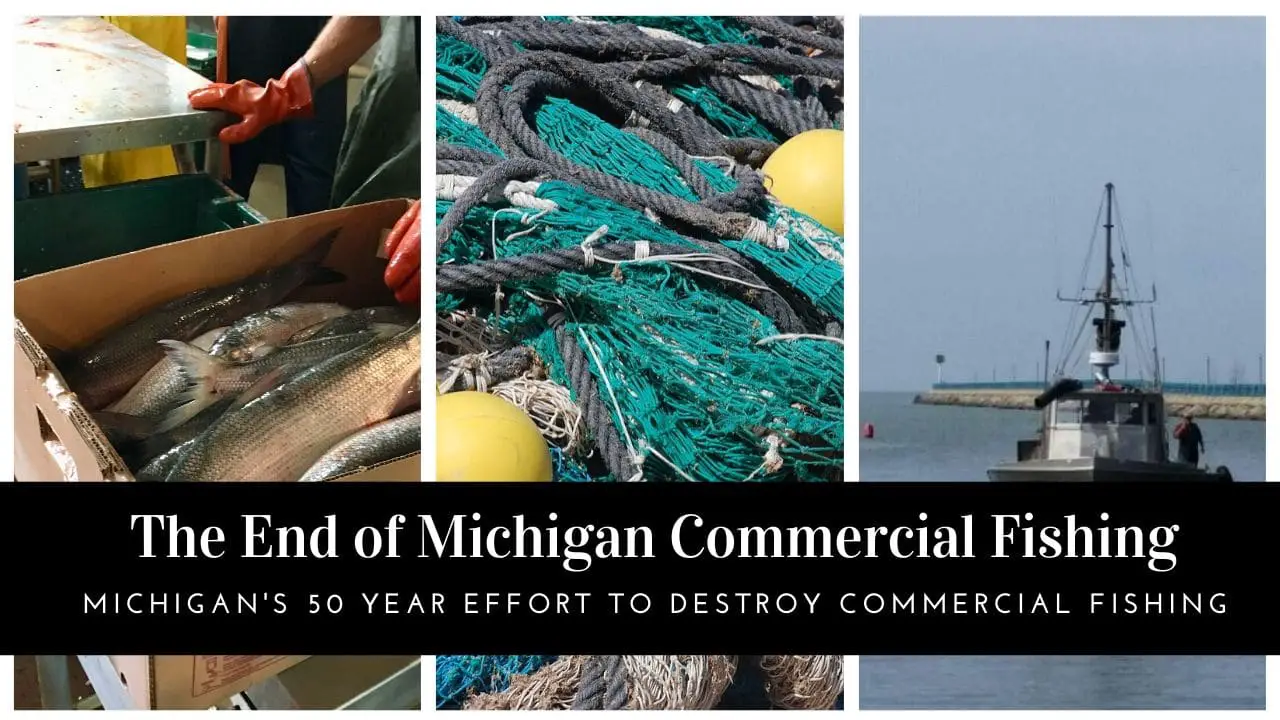


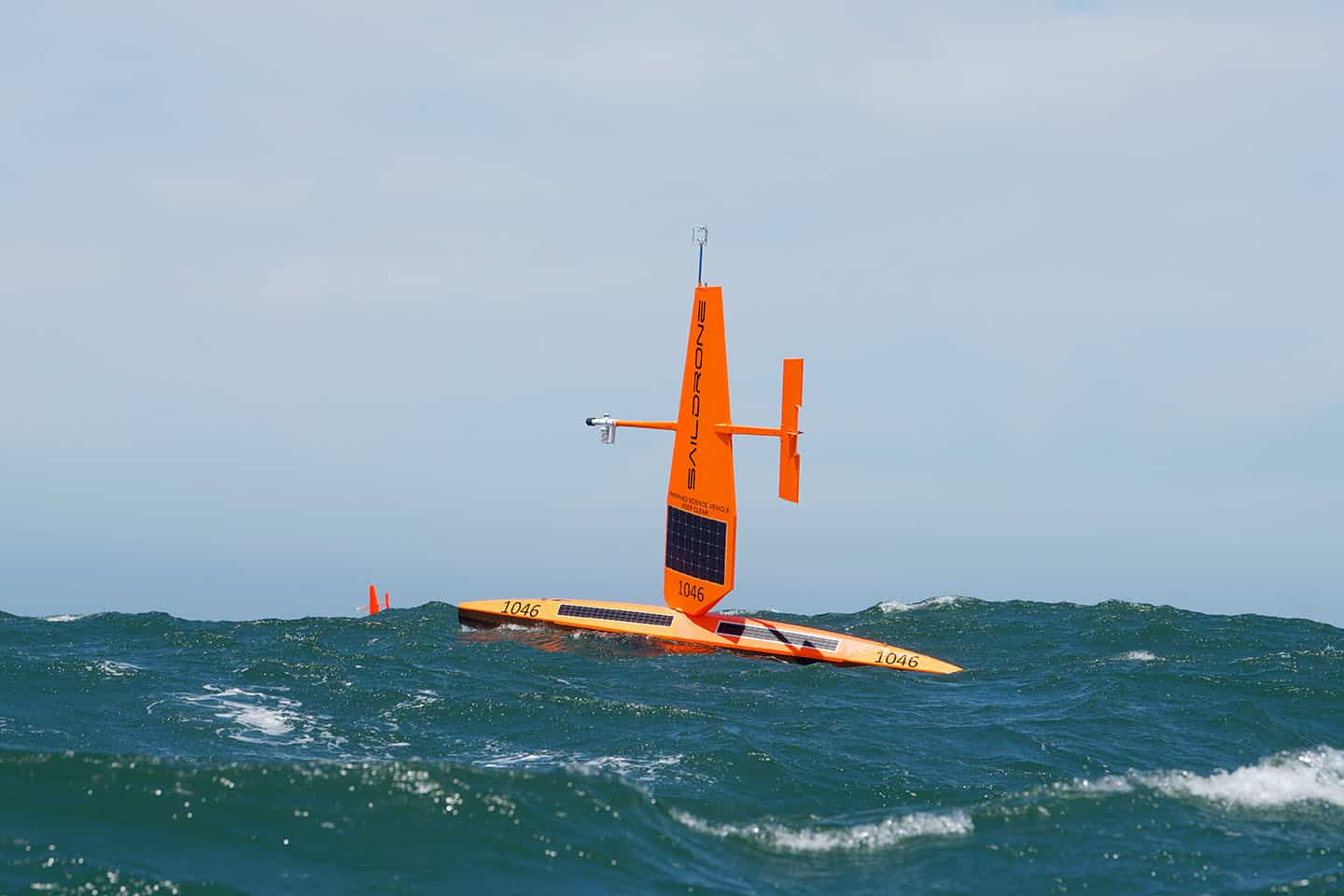
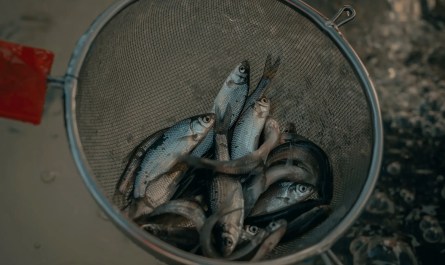
Your article fails to mention the economic impact of the sport fishermen in this state also the other proposed bills which includes by catch
I’m no expert by any stretch of the imagination I’m a life long resident of Michigan avid sportsman and fishermen $200 a year for a commercial fishing license is a joke poorly marked nets are common in Saginaw bay Friday night fish fry’s are not going away because of not having local fish Sportsmen’s dollars have paid for the world class fishing we enjoy today
Just my two cents
Hi Mike, Thanks for commenting. I’ve purposely not addressed the sportsmen aspect as its an obvious and expected outcome. Native Tribes will exert their sovereignty and treaty rights well into Saginaw Bay when their restrictions end in 2020. Thus the availability of Walleye and Perch will likely continue unabated. The loss of revenue by the collapse of the commercial fisheries will be offset on the backs of the 1.8 million anglers. Again thanks for visiting.